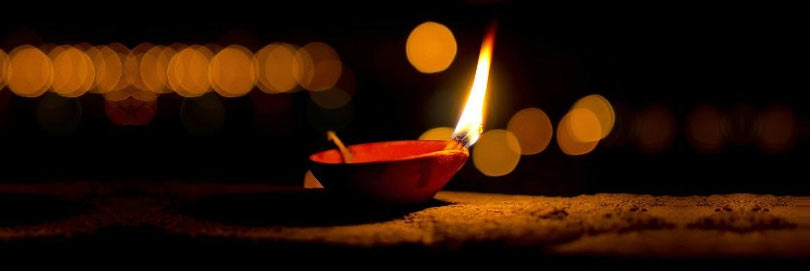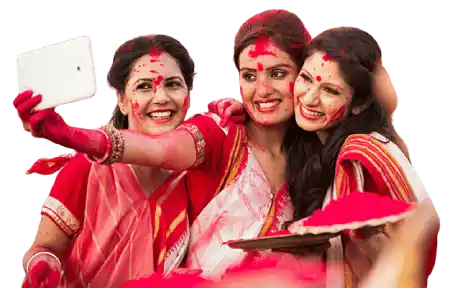
Diwali or Deepawali, is not only festival of lights, but also marks the beginning of the Hindu new year. It is one of the most important Indian national celebrations as it is believed that the Hindu goddess of good luck visits homes that are brightly lit. Children make “deeps” which are small clay lamps to light and bring the good luck goddess to their home so they can receive new clothes and toys. The first day of Diwali is also a New Year of Business. All companies pay off debts and their cars are decorated with flowers and palm leaves to bless the vehicles to run well in the new year.
The customs of wearing new garments and exchanging gifts and greetings have come to be associated with Diwali, probably because of this New Year celebrations. Accordingly most of the traditions of a New Year celebration are all present. The occasion sees the spring-cleaning and white-washing of houses; decorative designs or rangolis are painted on floors and walls to greet the new year.
Fresh flowers, exchanges of gifts, new clothes, meeting with friends and family, and feasting are part of the colorful festival. Each region of India celebrates Diwali in its own way, but the lighting of many small earthenware oil lamps is common throughout the country, setting homes and gardens aglow with twinkling lights. The lamps are symbolic of the victory of the light of goodness and knowledge over the darkness of evil and ignorance. The lighting of the lamps is also a way for people to show thanks for the good things in their lives..










Responses